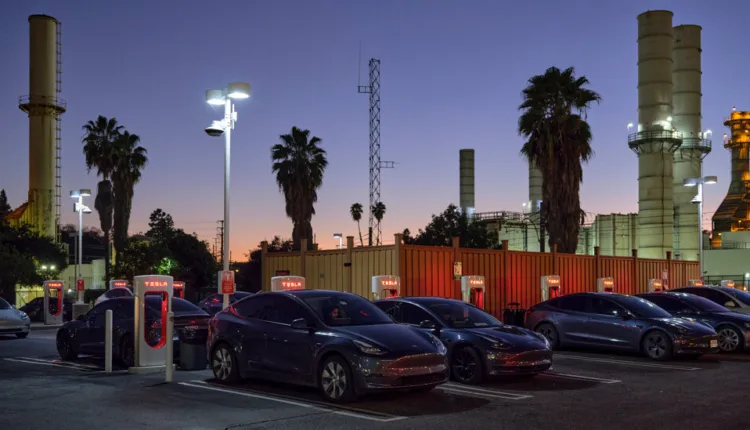
GOP Criticisms of Biden’s Climate Law Stir Pre-Election Worries
TL/DR –
Since President Biden signed a major climate bill into law, the U.S. has seen over $200 billion in new investments in clean energy projects. There is concern about possible changes to the legislation should Republicans regain control, with former President Trump and other Republican leaders criticizing aspects like tax credits for electric vehicles. Despite these concerns, energy experts and company officials believe a full repeal is unlikely due to the jobs and investments these projects are bringing to Republican districts.
US Clean Energy Investments Face Uncertainty Amid Political Changes
Following President Biden’s signing of a broad climate bill over a year ago, the US has seen a boom in clean energy projects, with new investments exceeding $200 billion. However, the upcoming election and potential Republican takeover have sparked concerns about possible disruptions to key aspects of the law.
Former President Trump, the leading Republican candidate, has consistently criticized key components of the Inflation Reduction Act, including tax credits for electric vehicle purchases. This has led to growing questions about the future of the law and its impact on clean energy investment decisions from corporate executives.
Despite repeated efforts by Republican lawmakers to revoke parts of the law, widespread repeal appears unlikely given the job creation and investment generated by new projects in Republican districts. Still, a Republican administration could influence the programs through regulatory changes, potentially altering which industries and companies benefit and impeding achievement of Biden’s climate objectives.
Concerns Over Possible Policy Rollbacks
The Inflation Reduction Act includes various incentives such as tax credits and subsidies to promote clean energy projects. It also offers tax breaks for consumers purchasing electric vehicles and energy-efficient appliances. Thomas Pyle, president of the American Energy Alliance, suggests that many of the law’s provisions could be targeted by Republicans in the event of a policy rollback.
For example, stricter requirements could be imposed on the types of electric vehicles eligible for the $7,500 tax credit. Some Republicans have advocated for tighter limits on electric vehicle components to support domestic manufacturing and reduce dependency on China.
Trump has been outspoken on his criticism of the law’s electric vehicle tax credits and various other aspects. This raises concerns about the law’s future and has led to inquiries about possible rollbacks on corporate earnings calls.
Industry Perspectives on the Law’s Future
Industry leaders in the clean energy sector are wagering that, even in the event of a Republican-controlled Congress, repealing the legislation would be problematic. Analysis from E2, an environmental non-profit, indicates that over half of major clean energy projects and 67% of jobs linked to them have been announced in Republican districts since the Act’s passing.
Amendments to the law could provide benefits to American industries. A Republican administration might simplify access to valuable tax credits for hydrogen production, according to Sasha Mackler, executive director of the energy program at the Bipartisan Policy Center.
David Carroll, chief renewables officer at Engie North America, notes that the number of jobs brought to Republican-led states such as Indiana and Texas by the law could greatly influence potential rollbacks. This sentiment is echoed by White House officials, who warn against Republican attempts to alter the climate legislation.
Cost Considerations and Precedent
Some energy researchers and business groups anticipate that Republicans would attempt to roll back parts of the law to offset the cost of extending Trump’s tax cuts, set to expire in 2025. Lori Esposito Murray, president of the Committee for Economic Development at the Conference Board, draws parallels to Republicans’ repeated attempts to revoke the Affordable Care Act, which underwent modifications but remained largely intact.
“Business leaders need to be considering that the policies may change,” Ms. Murray advises, noting that the extent of those changes remains uncertain.
—
Read More US Economic News
